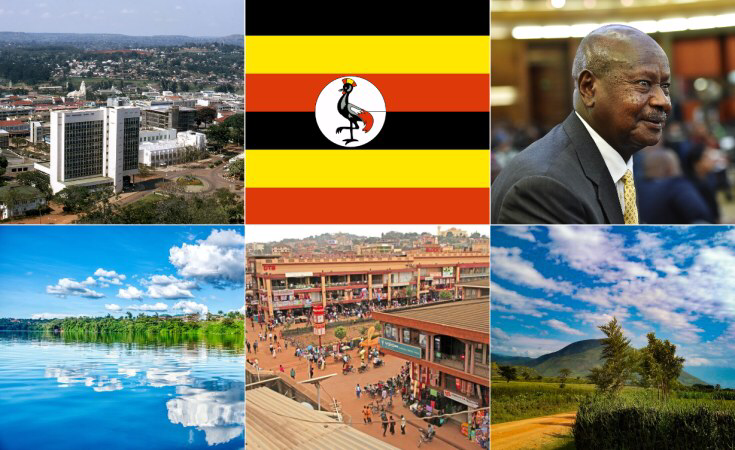By Elizabeth Kamurungi

Pixabay, Pixabay, GCIS/Flickr, Pixabay, Rachel Mabala/Daily Monitor, Keith Kasaija/Unsplash
Kampala, Uganda flag, President Yoweri Museveni, Nile River, Kasese District.
Uganda marked her 59th Independence anniversary, the second one devoid of the usual countrywide fetes because of restrictive measures instituted to curb the Covid-19 pandemic.
The historic October 9 celebrations are to be marked in a “scientific manner”, with only a limited number of guests expected to grace the occasion at Kololoceremonial grounds in Kampala today.
The State minister for Economic Monitoring in the Office of the President, Mr Peter Ogwang, told Parliament this week that only 570 guests were invited for the Kololo event. The celebrations kick off at 11am and will be presided over by President Museveni.
“Aware that the Covid-19 pandemic is still roaming large, this year’s celebration will be scientific. In other words, not more than 500 guests have been invited to physically be in Kololo. The rest of Ugandans will celebrate quietly at home. The activities in Kololo will be relayed live on televisions and radios and, therefore, people are advised to watch the proceedings from the comfort of their homes,” he said.
This year’s theme, ‘Celebrating Our 59th Independence Day as We Secure Our Future Through National Mindset Change,’ is largely drawn from the 2021/2026 National Resistance Movement (NRM) manifesto, “securing our future,” that delivered President Museveni his 6th elective term of Office.
“When you look at the National Development Plan III, one of the 18 programme areas is on the mindset change and I want to implore all of us, and the leading ministry, the Ministry of Gender Labour and Social Development, followed by ICT, [that] it is important we help government in trying to disseminate, talk to our people as far as mindset change is concerned,” MrOgwang said.
President Museveni partially reopened the country last month after a second nationwide lockdown, limiting the number of people in a gathering to 200, according to the capacity of the venue. The measure to limit gatherings has remained in place, following projections and warnings from the Ministry of Health of a more severe third wave of the pandemic.
As of October 5, the country had registered 124,254 cases, 3,170 deaths, and 96,218 recoveries from Covid-19. The positivity rate stands at 1.8 percent.
A day worth celebrating
The theme, Mr Ogwang said, will cement and mark a start for the enhancement of the achievements so far made.
Mr Ogwang said the country has moved past the post-independence status that was marked by sectarianism and insecurity to a country championing democracy and security.
“That period after Uganda’s independence was marked by marked by tribal and religious sectarianism, state abuse of power and human rights, state and economic collapse, and civil wars… a combination of measures was taken to endanger national security, democracy as well as social economic transformation but there is no doubt that Uganda is now on the right track,” he said.
Mr Ogwang highlighted key achievements, including the improvement in the education sector, that has translated into improved intellectual capacity, improved agriculture yields and exports, especially of coffee and diary, advancement in information and technology and bringing more Ugandans to the money economy, job creation, among others.
Allafrica.com
Original story published by monitor.co.ug
 Africa -China Review Africa -China Cooperation and Transformation
Africa -China Review Africa -China Cooperation and Transformation
